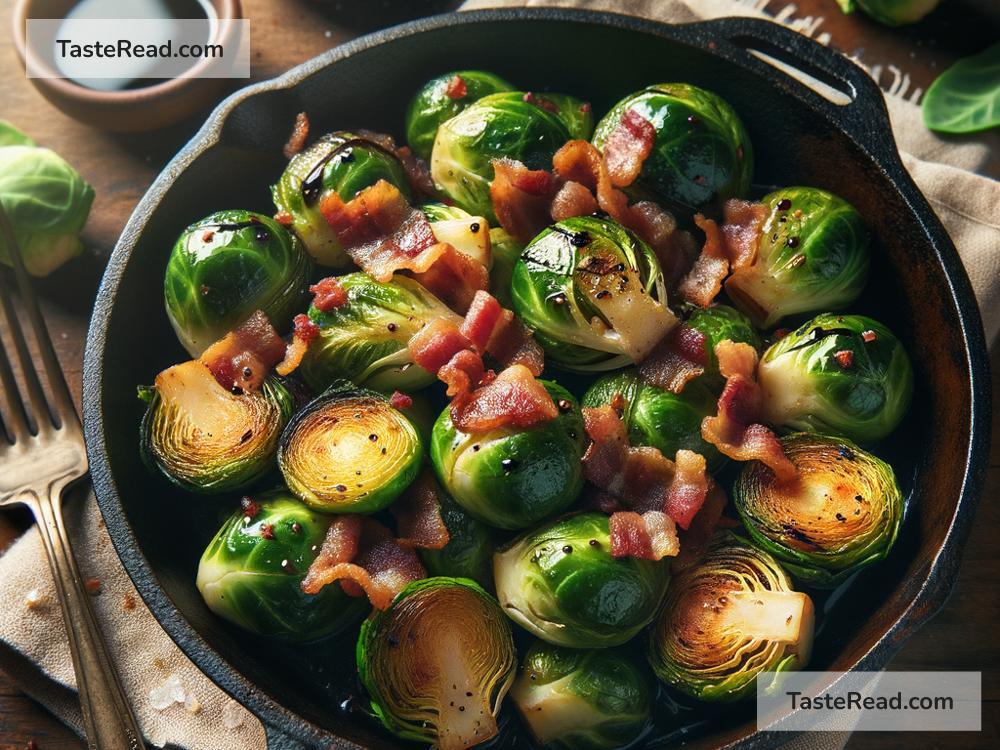Why Brussels Sprouts Are a Divisive Vegetable
Brussels sprouts are small, green, cabbage-like vegetables that tend to spark strong opinions. Some people love them, while others can’t tolerate their taste, smell, or even the idea of eating them. But why are Brussels sprouts such a divisive vegetable? To understand this, let’s take a closer look at the reasons behind this love-hate relationship.
The History of Brussels Sprouts
Named after the city of Brussels in Belgium, Brussels sprouts have been cultivated in Europe for hundreds of years. They belong to the Brassica family, which includes cauliflower, broccoli, and kale. Despite their long history, Brussels sprouts only became widely popular in modern times. Today, they’re grown in many parts of the world and often appear on holiday dinner tables.
While their history is fascinating, it doesn’t explain why they’re controversial. So let’s explore the reasons that make Brussels sprouts so divisive.
The Taste Factor
The primary reason people disagree about Brussels sprouts is their taste. These vegetables have a distinctive, slightly bitter flavor that divides opinions. Some people enjoy their earthiness and depth of flavor, while others find the bitterness overwhelming.
The bitter taste comes from specific compounds called glucosinolates. These compounds are naturally present in Brussels sprouts and are part of the plant’s defense mechanism against pests. While glucosinolates contribute to the vegetable’s health benefits, they also account for its polarizing flavor. If you have a sensitive palate, you might find the bitterness too strong.
Interestingly, research suggests that genetics play a role in whether someone likes or dislikes bitter-tasting foods. Some people have a variation in their taste receptor genes that makes them more sensitive to bitterness. If you’re one of these people, Brussels sprouts may not be your favorite vegetable!
The Smell Problem
Another common complaint about Brussels sprouts is their smell. When overcooked, Brussels sprouts release sulfur compounds that can lead to a strong, unpleasant odor. If you’ve ever walked into a kitchen where someone is boiling Brussels sprouts, you know what we’re talking about—it’s not the most appetizing aroma.
This smell turns many people off before they even taste the vegetable. However, modern cooking methods can help reduce or eliminate the sulfur smell. Roasting, sautéing, or steaming Brussels sprouts instead of boiling them can bring out their natural sweetness and make them much more appealing.
Childhood Trauma
For many people, their dislike of Brussels sprouts stems from childhood experiences. Parents often served them boiled and unseasoned, which brought out their bitter taste and sulfur smell. If you were forced to eat soggy, overcooked Brussels sprouts as a child, it’s no wonder you might avoid them as an adult.
Taste preferences also change over time. What you disliked as a child, you might enjoy as an adult—but Brussels sprouts have a harder time recovering from a bad first impression. Their reputation from childhood often lingers, making it harder for grown-ups to give them a second chance.
The Health Benefits (and Challenges)
Brussels sprouts are packed with nutrients, making them a superfood in the eyes of many health enthusiasts. They’re rich in vitamins C and K, fiber, and antioxidants, which help fight inflammation and support overall health. Their glucosinolates, which contribute to their bitter taste, also have cancer-fighting properties.
While health benefits may sway some people toward eating Brussels sprouts, for others, no amount of nutritional value can make up for a taste they dislike. The challenge is finding ways to prepare Brussels sprouts so that their health benefits shine without sacrificing flavor.
Popular Cooking Methods
Thankfully, Brussels sprouts have undergone a bit of a makeover in recent years, thanks to creative cooking techniques. Chefs and home cooks now roast them with olive oil to caramelize their natural sugars, grill them for a smoky flavor, or sauté them with garlic and bacon to create a rich, savory dish.
Even if you’ve disliked Brussels sprouts in the past, trying them prepared in new ways could change your opinion. Sometimes, the right seasoning or cooking method makes all the difference. Maple syrup, balsamic glaze, or Parmesan cheese can elevate the flavor and mask any bitterness.
Conclusion: Why We Can’t Agree on Brussels Sprouts
Brussels sprouts are divisive for many reasons—their taste, smell, and childhood reputation all play a role. While some people appreciate their unique flavor and health benefits, others can’t get past their bitterness or sulfur-like aroma.
Ultimately, whether you love or hate Brussels sprouts may come down to personal preference, genetics, and the way they’re cooked. If you’re someone who hasn’t enjoyed them in the past, it might be worth giving them another shot with new preparation methods.
Brussels sprouts will probably always be a hot topic during family dinners and gatherings, but one thing is certain: These tiny vegetables have sparked discussions and divided opinions for generations—and they aren’t going anywhere anytime soon!


